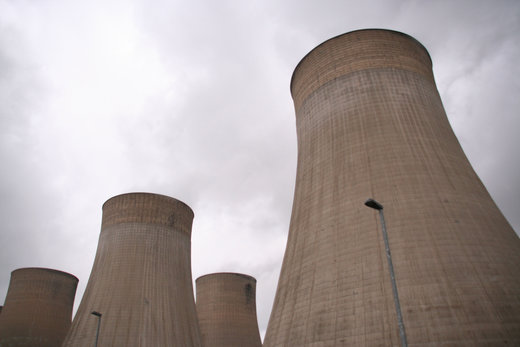6 August 2013
The market for coal-fired power stations took a hit last month when the World Bank announced it will no longer lend countries money to build them.
Seeking to minimise the environmental costs of expanding energy supply in developing countries, the bank said it would "only in rare circumstances" provide financial support for new greenfield coal power generation projects.
Burning coal to generate electricity pumps huge amounts of greenhouse gases into the atmosphere and yet, the bank notes, coal’s share of power generation is near a historic high, with the amount of electricity from coal rising even in Europe.
Last month the bank published its "Energy Sector Directions Paper" setting out the principles it would follow in its work in the energy sector.
It said its main focus would be expanding energy access in developing countries while at the same time promoting sustainable energy sources.

Ratcliffe-on-Soar coal-fired power station in UK (Luiscarlosrubino/Wikimedia)
Exceptions to its coal rule would include cases where coal met "basic energy needs in countries with no feasible alternatives".
It prefers natural gas, the fossil fuel with the lowest carbon output, and the paper says the bank will scale up its work helping countries develop national and regional markets for natural gas.
The paper also confirms the bank’s intention to increase support for hydropower projects.
"We need affordable energy to help end poverty and to build shared prosperity," said World Bank Group President Jim Yong Kim. "We will also scale up efforts to improve energy efficiency and increase renewable energy according to countries’ needs and opportunities."
Scaling back coal will be a tough challenge.
The bank says that nearly one-fifth of today’s global population – 1.2 billion people – lives without access to electricity, while two-fifths still rely on solid fuel such as wood, charcoal, dung, and coal.










